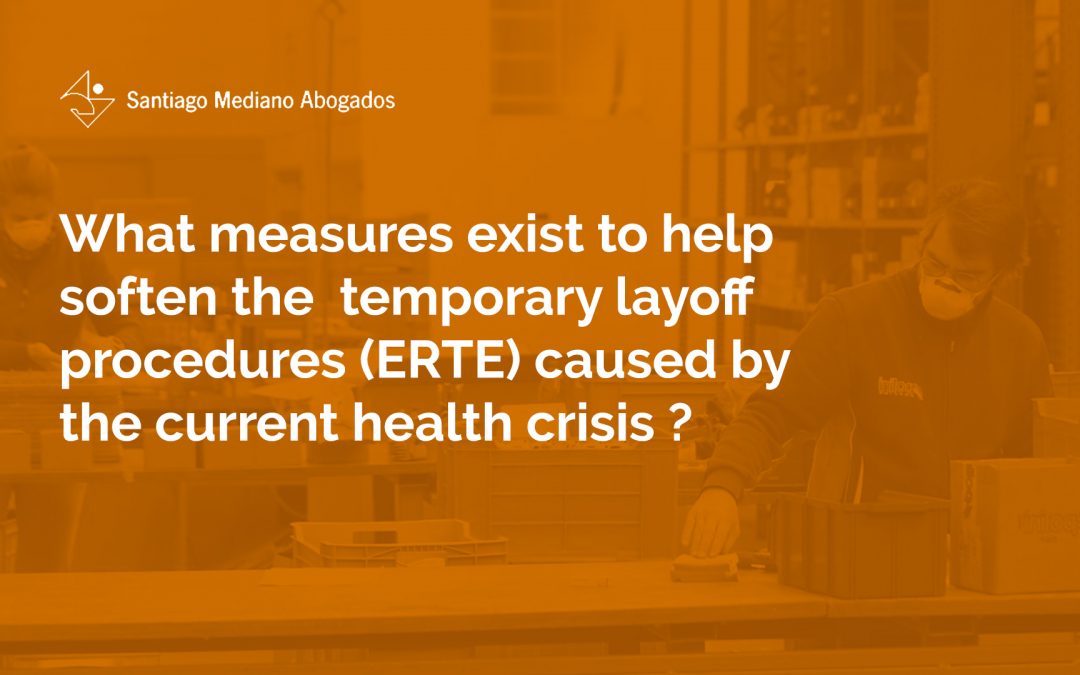The Royal Decree-Law 8/2020, of March 17th, on urgent extraordinary measures to combat the economic and social impact of the COVID19, is in force from today, Wednesday March 18th. It establishes in its Chapter II several measures to make more flexible the processing of the temporary employment regulation (ERTE) cases, for the suspension of contracts or the reduction of working hours, having as its main purpose ,the avoidance of dismissals during this health crisis.
- There are clearly TWO FORMS OF ERTE that can be Put into place during this COVID-19 crisis:
- RSTEs due to force majeure, which relates to when there is a loss of activity directly caused by COVID19, including the declaration of the state of alarm, which results in: the suspension or cancellation of activity, temporary closure of places of public gathering, restrictions on public transport and, in general, on the mobility of people and/or goods, lack of supplies that seriously prevent the continuing of ordinary activity, or in urgent and extraordinary situations due to the infection of staff or the adoption of preventive isolation measures decreed by the health authority.
- ERTEs from economic, technical, organisational or production causes, related to COVID-19, that shall be processed when none of the force majeure causes listed in the above-mentioned type of ERTEs occur.
- In both forms of ERTE, the following SPECIAL PROCEDURES are established with respect to the procedure contained in the regulations governing these cases:
- ERTE for force majeure:
– The application for ERTE should be accompanied by a report on the link between the loss of activity and COVID-19.
– The resolution of the labour authority declaring the existence of force majeure must have been issued within 5 days of the application.
- ERTEs for economic, technical, organizational or production reasons:
– If there is no legal representation for the workers in the company, the negotiating committee for the consultation period must be set up within a maximum of 5 days (reduced).
– The maximum duration of the consultation period is 7 days (reduced).
- Extraordinary measures are adopted in relation to CONTRIBUTIONS that are only applicable to ERTEs caused by force majeure:
- The companies are exonerated from paying the company’s contribution during the time that the ERTE is in place, in the following percentages:
100% in the case of companies that on 29/02/2020 had less than 50 workers registered with Social Security.
75% in the case of companies that on 29/02/2020 had more than 50 workers registered with Social Security.
– The exemption from contributions will be applied by TGSS at the request of the company, stating the period to which the measure applies (suspension/reduction), and identifying the workers affected. The TGSS will check the information provided by the company by crossing data with SEPE.
– Extraordinary measures are adopted in the field of UNEMPLOYMENT which are applicable to both forms of ERTE:
– All the workers affected will be entitled to receive the contributory unemployment benefit during the measure (suspension/reduction), whether or not they have the minimum contribution period required to do so.
– The time during which the unemployment benefit is received will be considered as a «parenthesis» and will not be counted as used.
- An important SAFEGUARD is established: the extraordinary measures adopted in the labour field are subject to the commitment by the company to maintain employment for a period of six months from the date of resumption of the activity.
- The extraordinary measures adopted in the field of payment contributions and unemployment are applicable to the ERTEs that have been notified, initiated or authorised prior to the entry into force of the Royal Decree.
All these extraordinary measures shall be in force for one month from the entry into force, without prejudice to possible extensions.

Recent comments